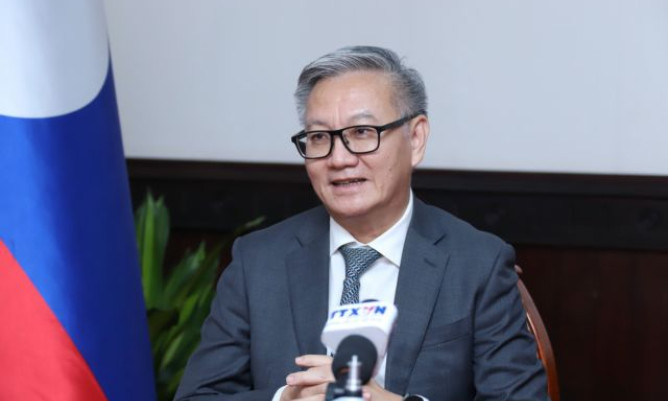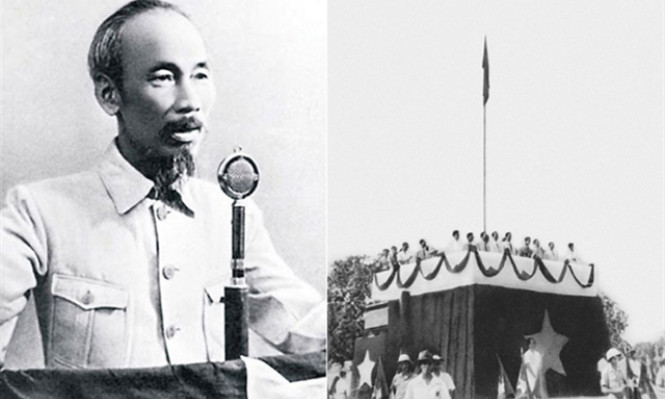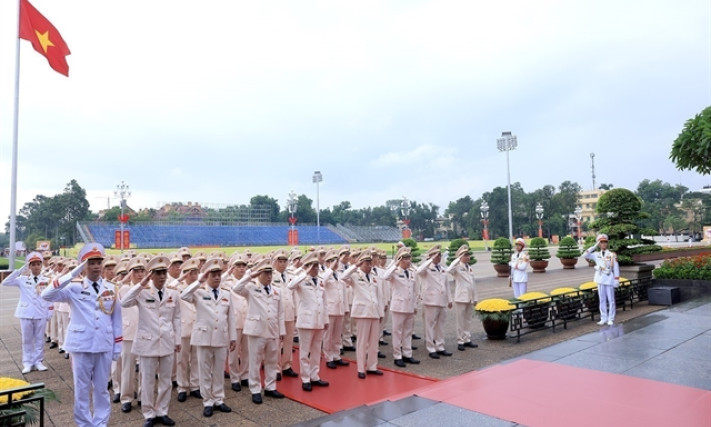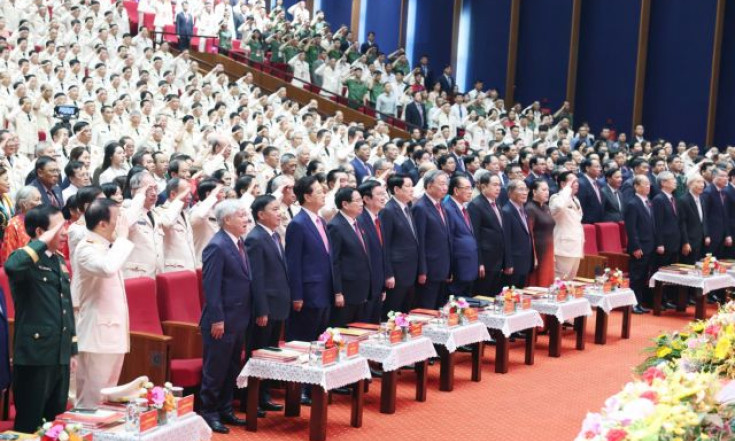The role of women in disaster prevention should be strengthened: conference
Gender equity and inclusion in disaster risk management were among the issues discussed at formal sessions of the Asia-Pacific Ministerial Conference on Disaster Risk Reduction (APMCDRR) 2024 recently held in Manila, Philippines.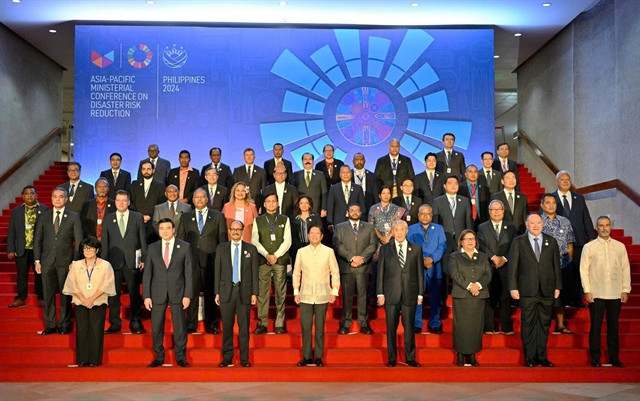
Gender equity and inclusion in disaster risk management were among the issues discussed at formal sessions of the Asia-Pacific Ministerial Conference on Disaster Risk Reduction (APMCDRR) 2024 recently held in Manila, Philippines.
The 10th Asia-Pacific Ministerial Conference on Disaster Risk Reduction lasted for five days, from October 14 to 18, with the theme “Surge to 2030: Enhancing ambition in Asia Pacific to accelerate disaster risk reduction”.
Nearly 3,000 delegates including leaders, government officials, representatives of international organisations, non-governmental organisations and scholars from 39 countries in the Asia-Pacific region participated in the conference directly.
Delegates focused on discussing three main issues, including Practical solutions to increase financing for disaster risk reduction; Leaving no one behind: Gender-equitable and inclusive disaster risk management; and Localisation and resilience of urban and rural areas.
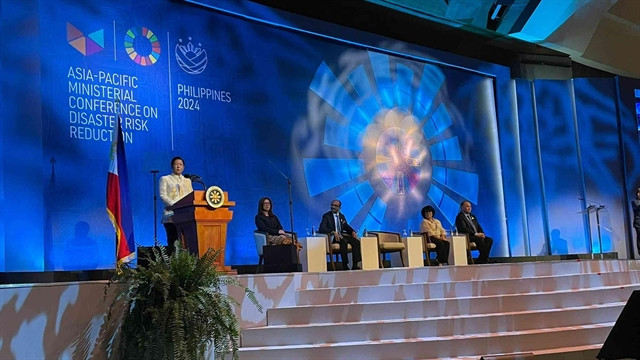
Within the conference’s framework, Việt Nam’s report “Analysis of the capacity to adapt to climate disasters among Khmer women in the Mekong Delta” was shared with the international media.
This is the result of cooperation between ActionAid International in Việt Nam and scientists from the Cần Thơ University, showing the efforts of Khmer women in the face of natural disasters and the increasing adverse impacts of climate change in the Mekong Delta.
The initiatives discovered and introduced have further clarified the role of Khmer women and ethnic minority women in improving the effectiveness and sustainability of disaster prevention and risk reduction in Việt Nam.
This was also reaffirmed in many discussions at the conference.
Despite many challenges, when women are leaders in disaster preparedness, response and recovery, their contributions can improve the effectiveness of disaster risk reduction efforts.
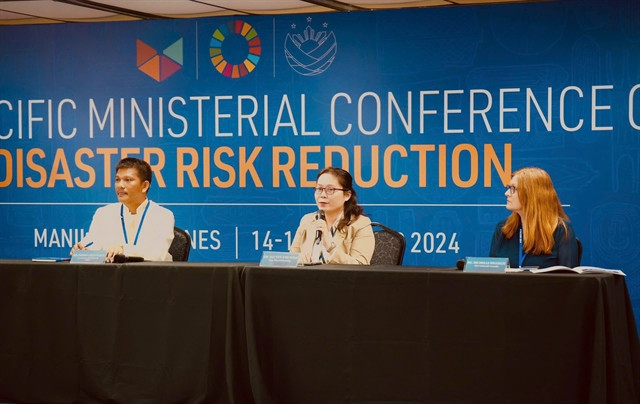
Nguyễn Ánh Minh, lecturer at the Cần Thơ University, head of the research team in Việt Nam, said: “Khmer women in the Mekong Delta have proactively applied salt-tolerant crop cultivation and aquaculture techniques to better adapt to the negative impacts of climate change, basically protecting their livelihoods.”
The establishment of local cooperatives has helped Khmer women gain economic power, supporting them to build greater financial independence and promote solidarity in the community.
“These initiatives not only contribute to disaster preparedness but also create opportunities for women in leadership roles,” she said.
Hoàng Phương Thảo, representative of the ActionAid International in Việt Nam, emphasised: “Community-based disaster risk management (CBDRM) plans need to be rehearsed and practised regularly to be effective.”
ActionAid International in Việt Nam is currently supporting victims of the recent super typhoon Yagi in four provinces and cities including Lào Cai, Yên Bái, Quảng Ninh and Hà Nội.
“The actual response activities are clear evidence that if CBDRM plans were fully funded, regularly practised and actively participated and led by women, economic losses and psychological trauma caused by natural disasters would certainly have been minimised and better controlled and more proactive,” said Thảo.
Việt Nam's initiatives and experiences are also introduced and recorded in the report "Transforming Disaster Response: Women-led Climate Change Response Solutions in Asia - Pacific".
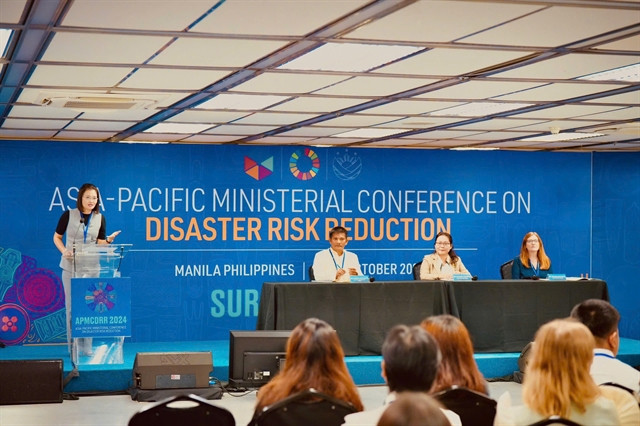
This report was conducted in six countries including Việt Nam, Australia, Nepal, Bangladesh, Myanmar and Cambodia, demonstrating the importance of women's substantive participation in disaster risk reduction efforts.
The research results recommend that governments in the region should consider adjusting policies, focusing on investment so that women can actively and directly participate in disaster risk reduction for high efficiency and sustainability.
According to the report, governments in Asia and the Pacific have submitted their Nationally Determined Contributions (NDCs) to the United Nations Framework Convention on Climate Change (UNFCCC).
However, less than half of the plans include commitments to increase women’s participation in climate action.
Asia-Pacific is the world’s most disaster-prone region, and women are increasingly exposed to extreme weather events.
In a disaster, women and children are 14 and four times more likely to die and become refugees, respectively, than other groups. For women and children with disabilities, the numbers are even higher.
"When disasters strike, women are four times more likely to be displaced from their homes than men. Across all natural disasters, women experience more violence and do more unpaid care work than men. Climate change exacerbates gender inequality, increases women's vulnerability, and exacerbates economic losses for women, as most workers in informal or unprotected jobs are women." – This is the research result emphasised in the report.
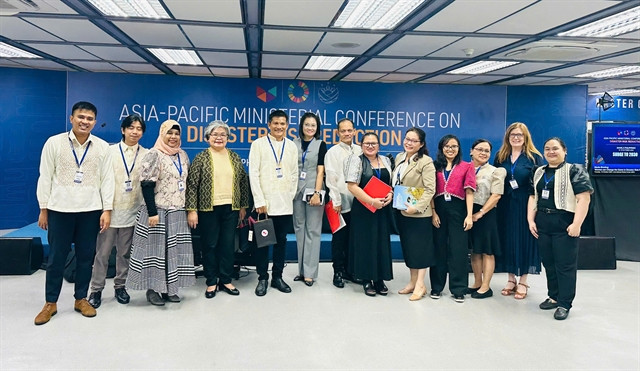
Of the nearly 100 countries in the Asia-Pacific region, nearly 50 are members of the Sendai Framework for Action.
According to the mid-term review of the Sendai Framework results released in July this year in New York, more than one-third of the NDCs submitted to the United Nations did not recognise the role of women at all, and only seven countries in the Asia-Pacific region (out of 188 countries that are members of the Sendai Framework) provided specific indicators of budget commitments towards gender-responsive outcomes in disaster prevention and climate change adaptation.
Speaking to international media at a conference on the report, Thảo, Representative of the ActionAid in Việt Nam, said: “In the next four years, developing countries will face a collective debt of up to US$500 billion. This will prevent developing countries like Việt Nam from investing meaningfully in vocational training, climate-resilient livelihoods, and gender-sensitive public services to prepare for and respond more effectively to natural disasters.”
When women proactively participate in disaster risk reduction, they can fully lead their communities, contributing to strengthening their resilience to the adverse impacts of natural disasters and climate change.
“For gender-responsive policies and targeted resources to become a reality, governments across the Asia-Pacific region need to work together and with governments around the world to ensure that there are sufficient financial resources to encourage and enable women to take the lead and build more sustainable and resilient communities,” she said.


